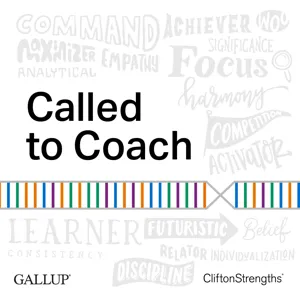Podcast Summary
The Importance of Having Hard Conversations: Having hard conversations, though uncomfortable, are necessary for growth and progress. Surround yourself with people who provide honest feedback to learn and grow.
Having hard conversations, although uncomfortable and unpleasant, are essential for growth and development, especially for founders in the startup world. As Michael Sibley and Dalton Caldwell discussed, a hard conversation is one where the stakes are high and the outcome could be risky or impolite. Easy conversations, on the other hand, are superficial and agreeable. As a startup advisor, Sibley shared that he initially measured his effectiveness based on how much fun founders had during their conversations. However, he soon realized that this approach was not helpful and instead began having honest conversations, sharing his opinions and constructive criticism. Comparing the role of a true friend to that of a startup advisor, Sibley emphasized that the people who can tell us difficult truths are the ones who help us learn and grow. Surrounding oneself with people who are unable or unwilling to provide honest feedback can lead to a stagnant and unproductive situation. Therefore, having hard conversations, even though they may be uncomfortable, can ultimately lead to better outcomes and progress. It's important to remember that these conversations are necessary for personal and professional growth, and they can help founders navigate challenges and make informed decisions.
Listen beyond surface-level questions: During office hours, it's crucial to identify hidden concerns and provide valuable insights to help founders move forward.
During office hours with founders, it's essential to identify the real question behind the surface-level queries. Founders often come with seemingly clear questions, but the underlying motivation might be a desire for validation or reassurance. In such cases, it's crucial not to validate dishonestly but instead, uncover the hidden question. For instance, a founder might appear to be seeking advice on a business decision they've already made or when applying to an accelerator like Y Combinator. However, the real concern might be insecurity and a need for validation. Similarly, when a startup is struggling to raise funds, the founder might be seeking guidance on how to pivot or adjust their strategy. As office hours facilitators, it's our responsibility to help founders uncover these hidden questions and provide them with valuable insights and advice to help them move forward. Overall, the key takeaway is that during office hours, it's essential to listen beyond the surface-level questions and identify the underlying concerns to provide the most effective guidance.
Preparing for the Worst with Founders: Understand founders' underlying concerns and acknowledge their perspective to maintain productive relationships, while being prepared for potential setbacks.
In the world of startups, it's essential to be prepared for the worst while maintaining optimism. In situations where founders express an excessive spending plan or desire for lengthy meetings, it's crucial to understand the underlying concerns. These requests might stem from a lack of confidence in the advisor's abilities or a desire for deeper relationship-building. Instead of debating their plans, it's more effective to acknowledge their perspective and address any potential concerns. Using the analogy of bringing a parachute on an airplane, it's better to be prepared for potential setbacks than to be surprised by them. Additionally, founders may hold unrealistic expectations of advisors, assuming they have a God-like understanding of every user base and problem. By recognizing these underlying motivations, advisors can effectively guide founders while maintaining a productive and respectful relationship.
Effective communication and productive conversations in user research and co-founder relationships: Prepare for user research conversations with an agenda and open mind, build trust and respect in co-founder relationships, and learn to disagree respectfully to mitigate conflict and strengthen partnerships
Effective communication and productive conversations are essential for success in both personal and professional relationships. In the context of user research, engaging directly with customers can provide valuable insights that surpass what can be gained through internal discussions. Furthermore, approaching conversations with a well-prepared agenda and an open mind can lead to more productive outcomes. Regarding co-founder relationships, it's important to remember that disagreements and hard conversations are inevitable. Building a foundation of trust and respect before starting a business can help mitigate the potential damage of these conflicts. Learning how to disagree respectfully and release the pressure of disagreements without causing irreparable harm to the relationship is a crucial skill for co-founders to master. Ultimately, embracing the challenges of communication and conflict resolution can lead to stronger, more resilient partnerships and successful ventures.
Effective communication during disagreements: Balancing conflict resolution and personal space, understanding individual differences, avoiding unhealthy tension or constant disagreements, and recognizing when to let go are keys to successful communication.
Effective communication, especially during disagreements, is crucial for maintaining healthy relationships, whether in personal or professional settings. It's important to find a balance between addressing conflicts and giving each other space to process. People deal with conflict differently, so it's essential to be aware of these differences and adapt accordingly. Avoiding hard conversations can lead to built-up tension, while constant disagreements can create an unhealthy work environment. As a leader, it's essential to recognize that you might have hired the wrong person for the role and be open to the possibility of letting them go if it's in the best interest of the team. Overall, having difficult conversations in a respectful and considerate manner can lead to better outcomes for everyone involved.
Effective communication and transparency are essential for founders and employees: Be open about challenges and involve employees in problem-solving to foster a culture of support and growth.
Effective communication and transparency are crucial for both founders and employees in a startup environment. Employees want to be involved in the company's challenges and successes, and they appreciate honesty and openness from their leaders. Sharing difficult news may initially seem demotivating, but great employees are motivated by the opportunity to help solve problems and make a significant impact on the company's outcome. Founders, in turn, should be open to having hard conversations and continuously questioning their assumptions, rather than avoiding difficult topics. No one is perfect, and everyone faces challenges, so it's essential to create a culture of openness and support where everyone feels empowered to contribute and grow. The West Wing scene serves as a reminder that everyone, no matter their position or background, faces struggles and that acknowledging and addressing these challenges can lead to positive outcomes.
Empathy and experience matter in effective support: Understanding someone's struggle before offering solutions and sharing personal experience can provide valuable guidance and hope.
Effective support involves empathy and experience. In the discussion, the speaker emphasized the importance of understanding someone's struggle before offering solutions. The analogy of jumping down a well together illustrates this idea. When someone is at the bottom, feeling lost and struggling, it's not helpful to simply suggest a solution without having experienced the challenge yourself. Instead, jumping down in the well with them and sharing your own experience can provide valuable guidance and hope. As a Y Combinator partner, this approach is crucial. The partner has made mistakes before and will likely make them again, but their experience allows them to help founders navigate the same challenges. They don't promise error-free ball, but they do offer a way out based on their own journey. This empathetic and experienced approach fosters a deeper connection and trust between the partner and the founder, leading to more successful outcomes.





